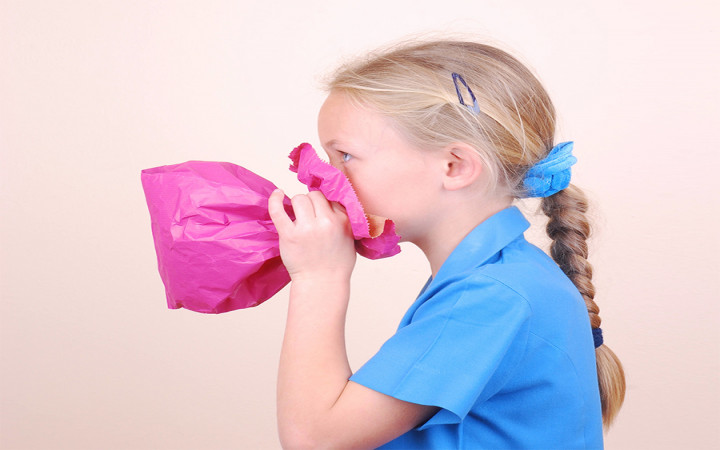Today’s Wonder of the Day was inspired by Carrigen. Carrigen Wonders, “Why do you shake when you hyperventilate?” Thanks for WONDERing with us, Carrigen!
Okay, Wonder Friends, take a deep breath in and hold it. Now let it out slowly. Repeat that a couple of times. Breathe in, breathe out.
We don't often give much thought to breathing. After all, our bodies do it automatically. Even though it's critical to life, we tend to take it for granted.
Did you know that breathing can also be dangerous? It's true! Like sugar, too much of a good thing, such as breathing, can be bad for you.
Breathing too much can occur if you experience hyperventilation. Also known as overbreathing, hyperventilation consists of rapid, deep breathing.
During normal breathing, you inhale oxygen and exhale carbon dioxide. During hyperventilation, however, you exhale too much carbon dioxide, leaving your blood with too little carbon dioxide.
Low levels of carbon dioxide in the blood lead to the symptoms associated with hyperventilation, including a rapid heartbeat and feeling short of breath and lightheaded. Other more serious symptoms can include numbness in your extremities, sore chest muscles, and fainting.
Acute or sudden hyperventilation can be triggered by anxiety, emotional stress, fever, and even intense exercise. Chronic or recurring hyperventilation might be caused by a more serious medical issue, such as asthma, emphysema, or lung cancer.
What should you do if you're hyperventilating? If it's a mild case, you can usually treat it at home by relaxing and trying to breathe normally. Some people use a paper bag to breathe into to help return to their regular breathing rate.
If you're experiencing repeated hyperventilation or more serious symptoms, you may need to see a doctor. Professional medical help is sometimes needed for more serious cases of hyperventilation. A doctor may prescribe relaxation techniques, special breathing techniques, or a variety of medicines.




